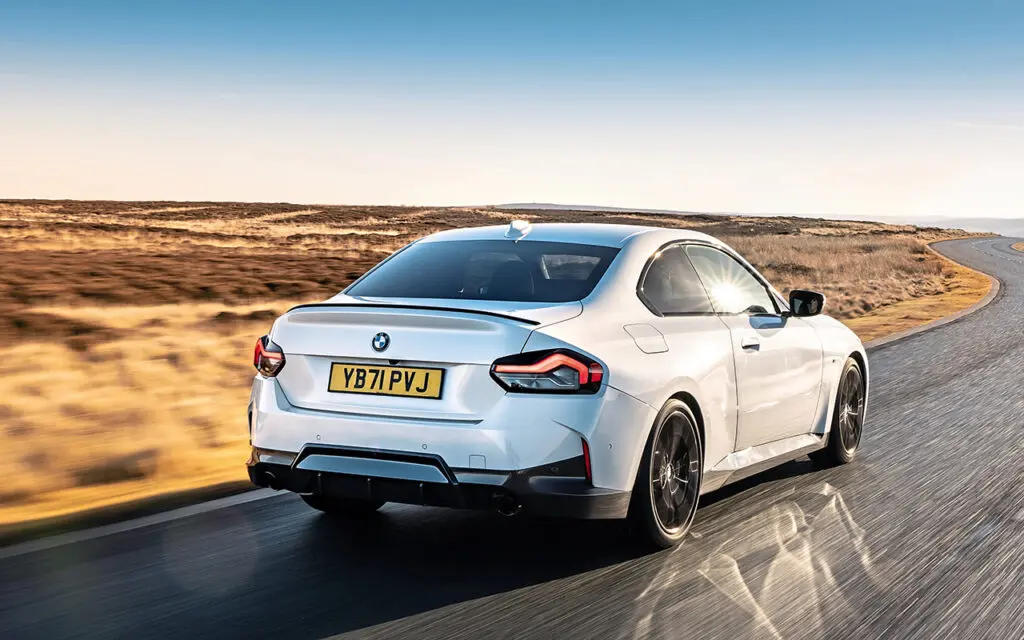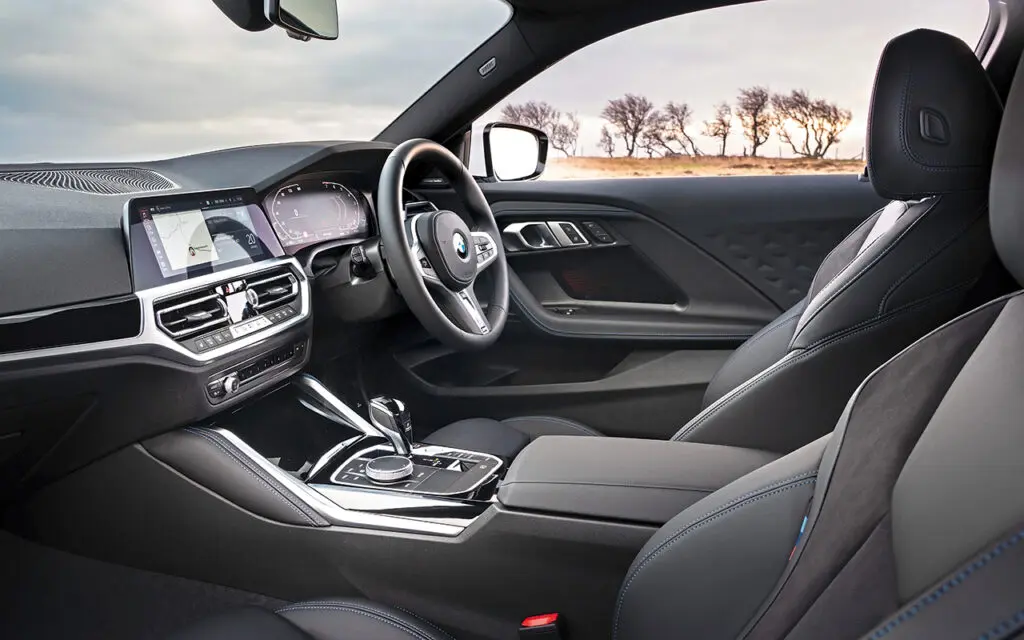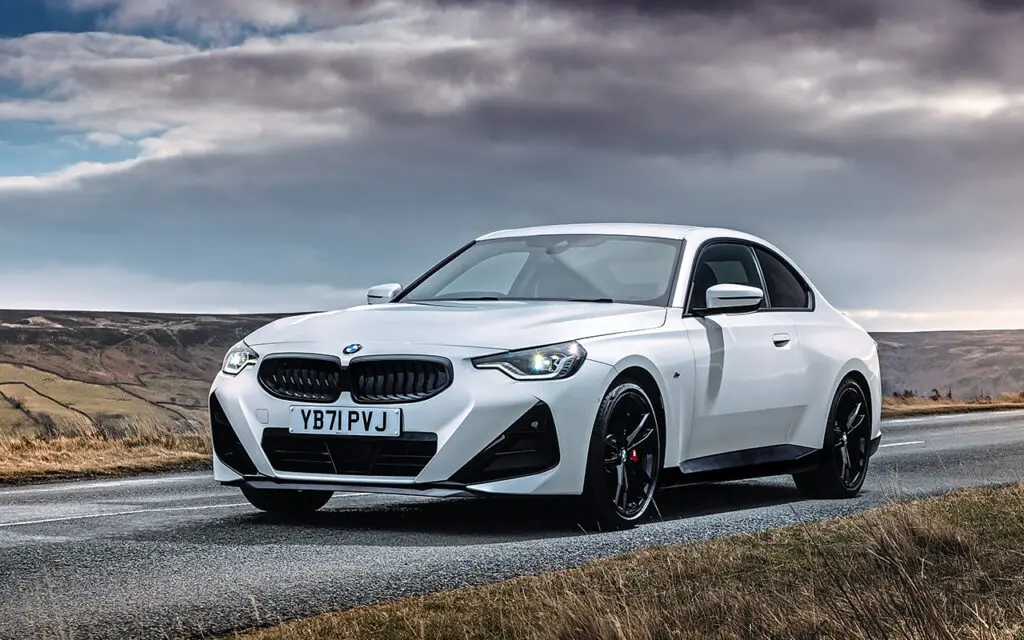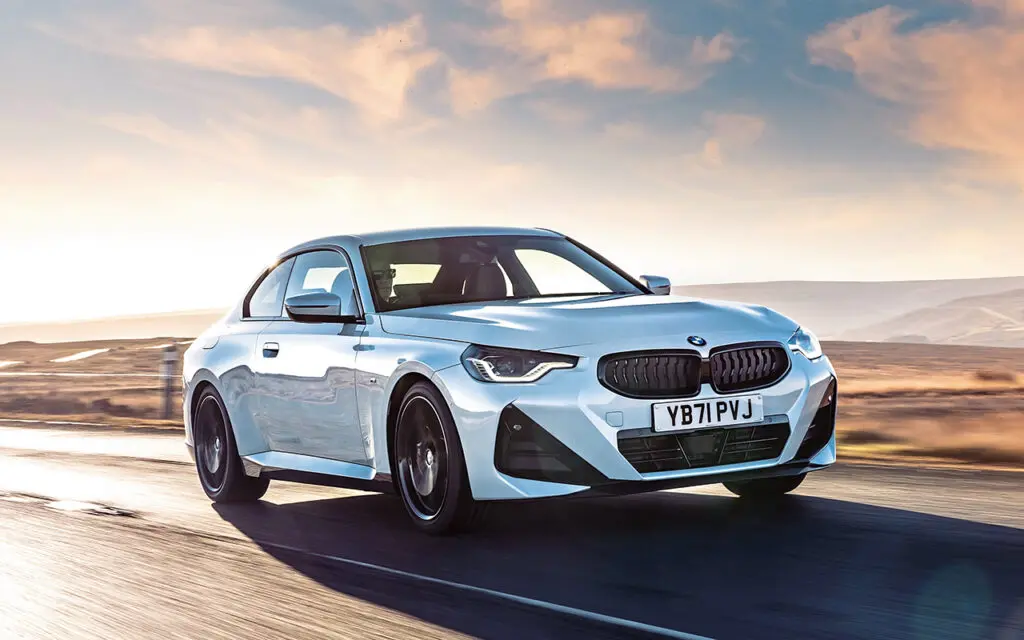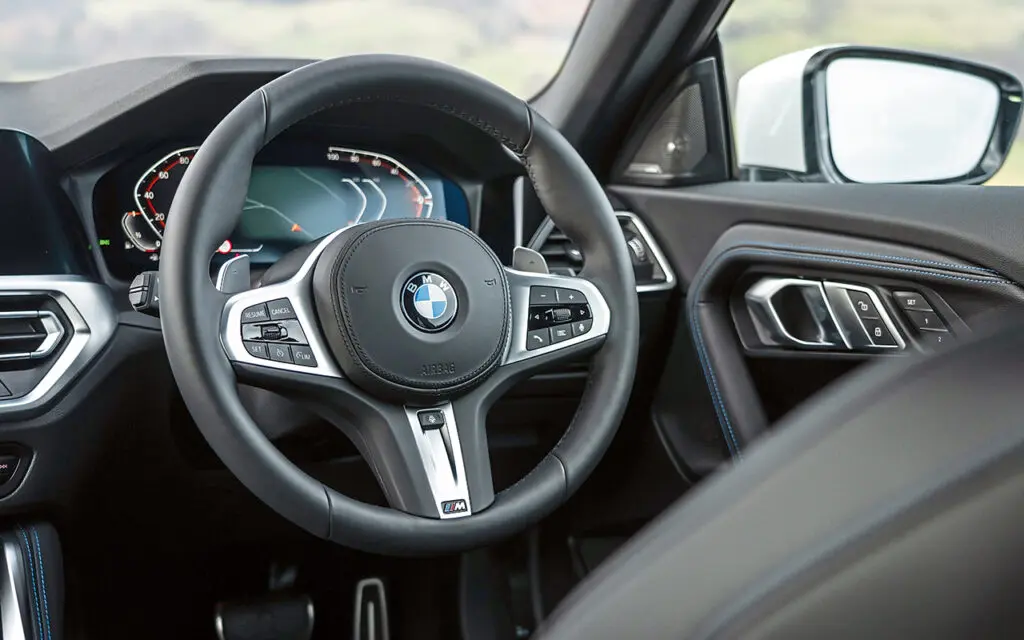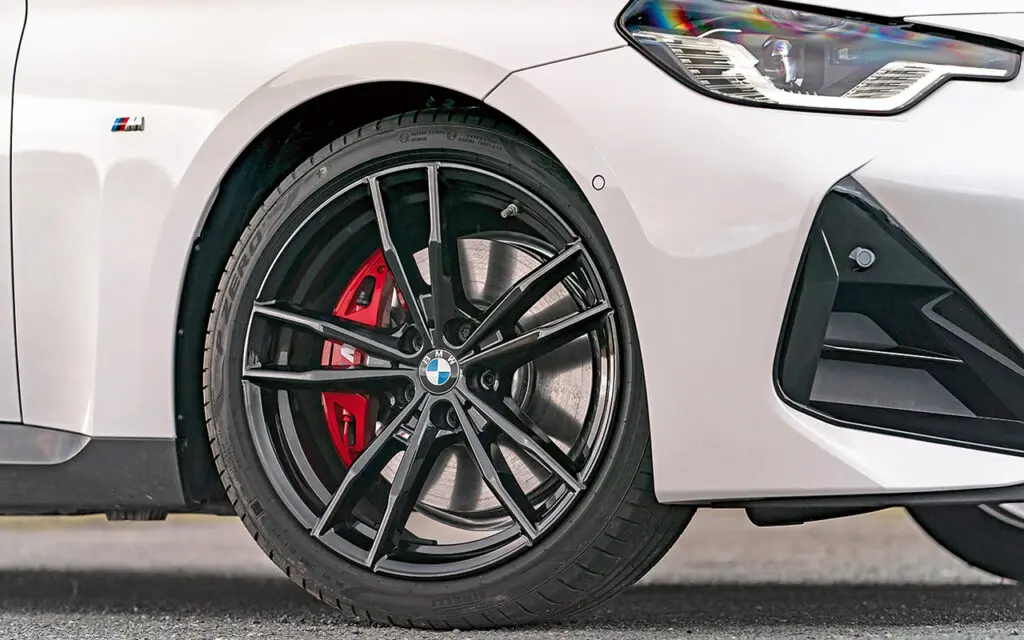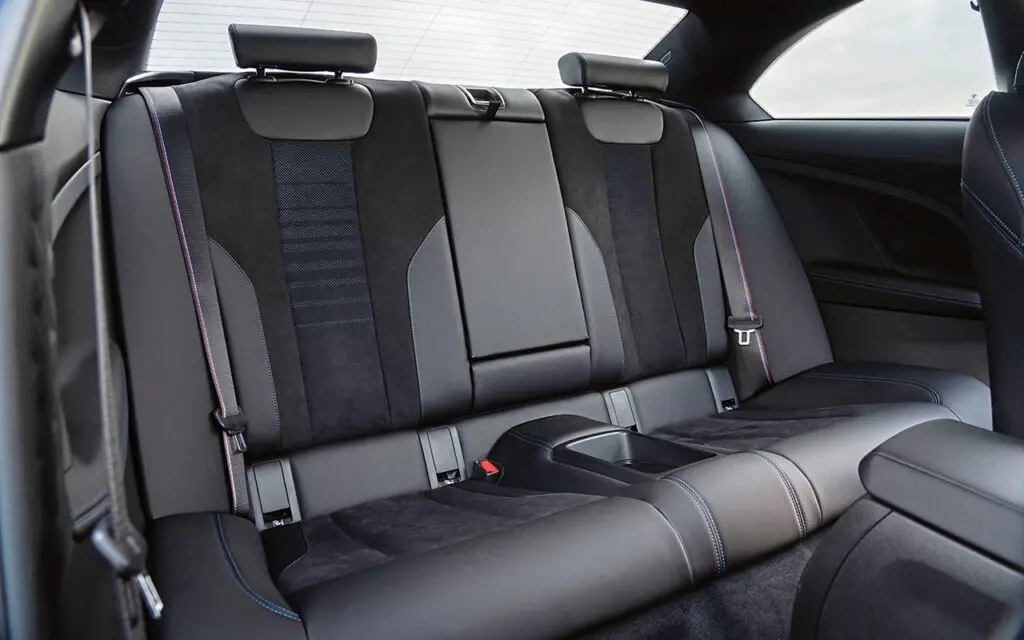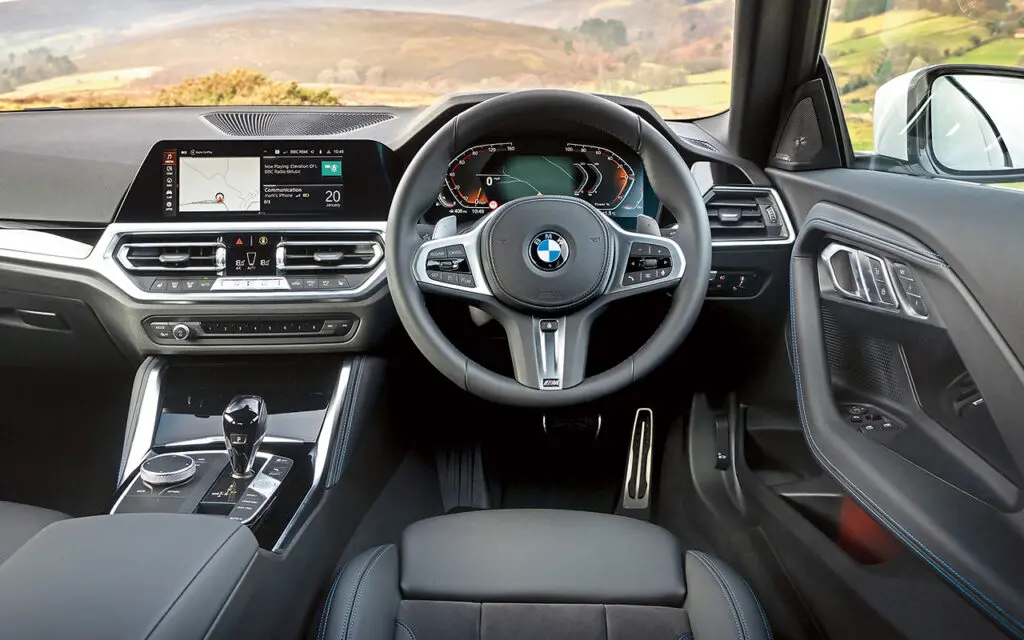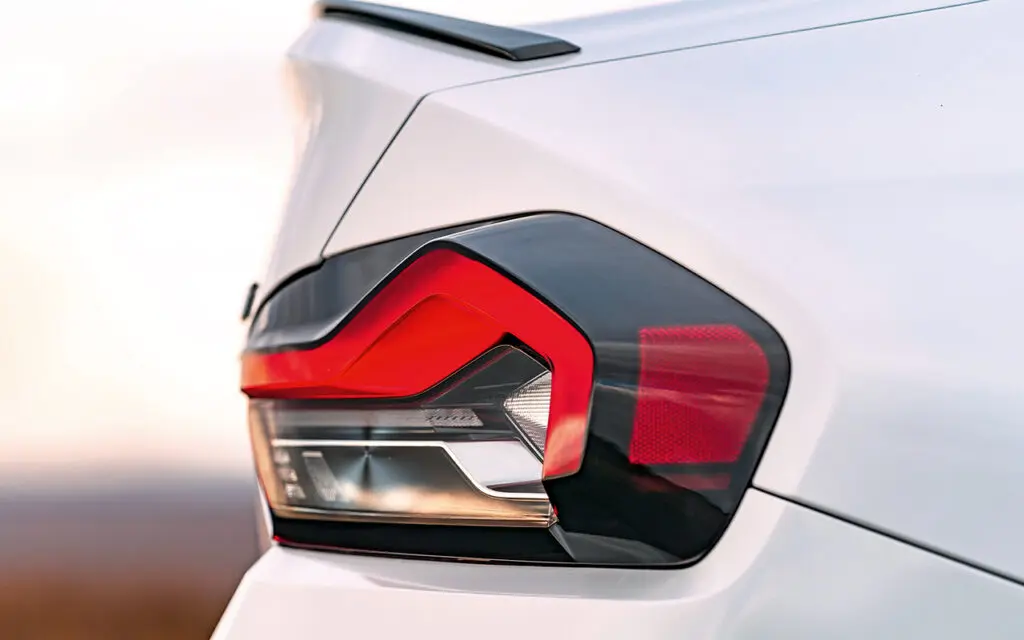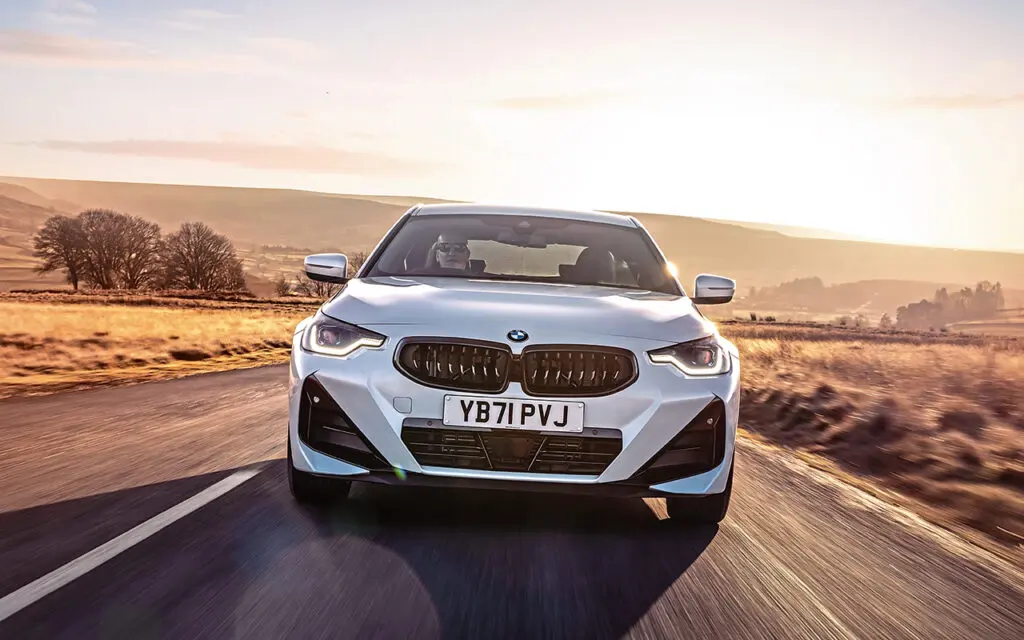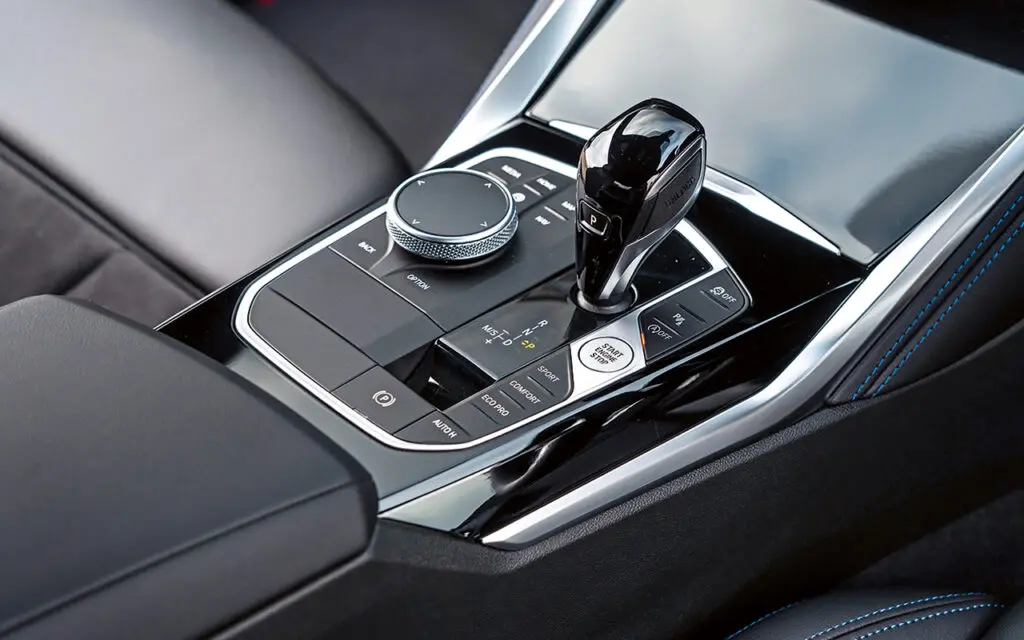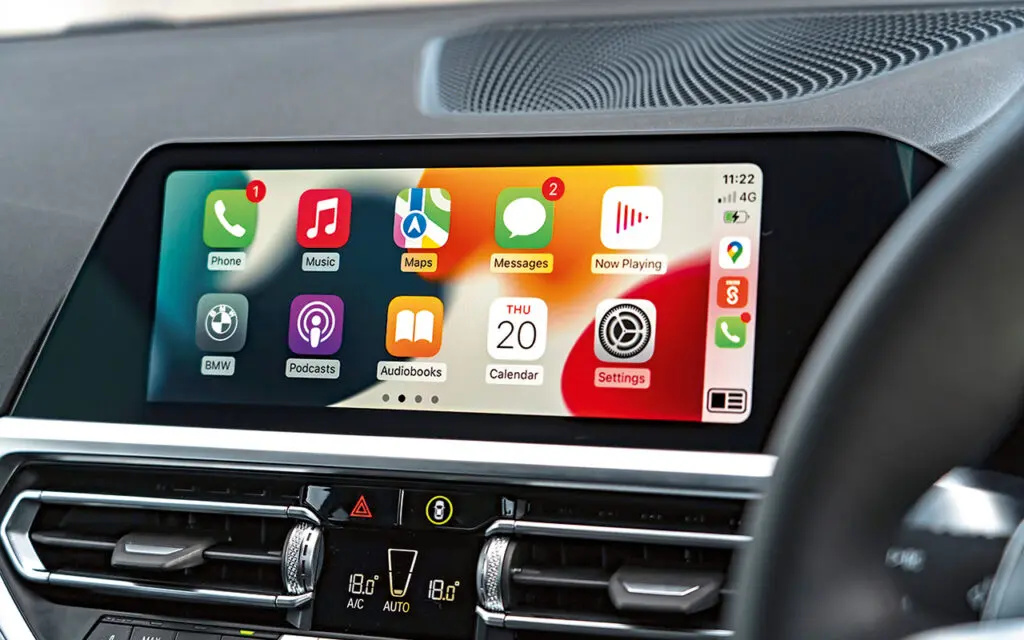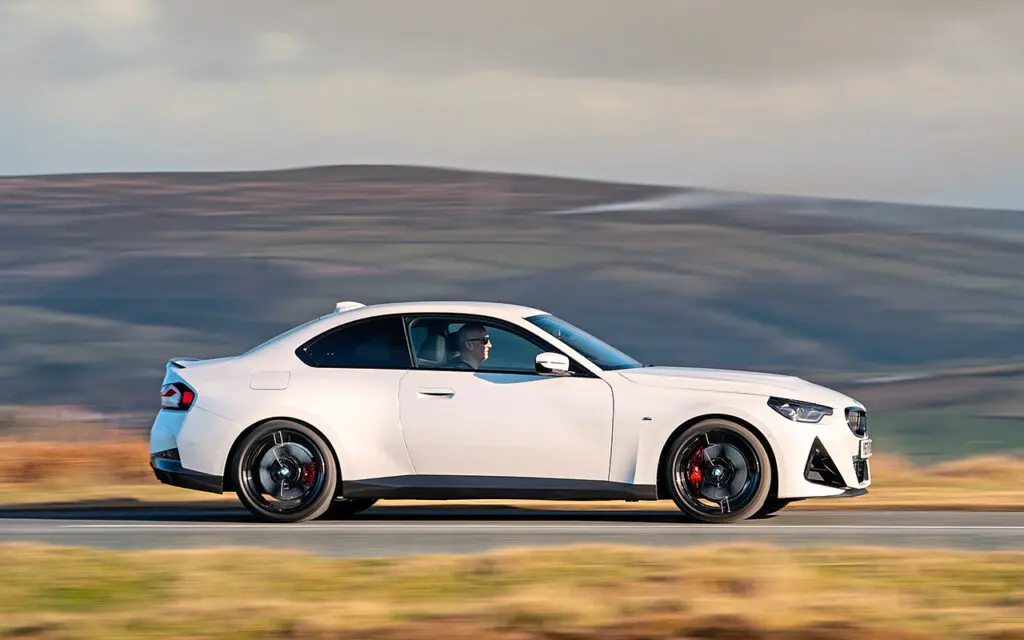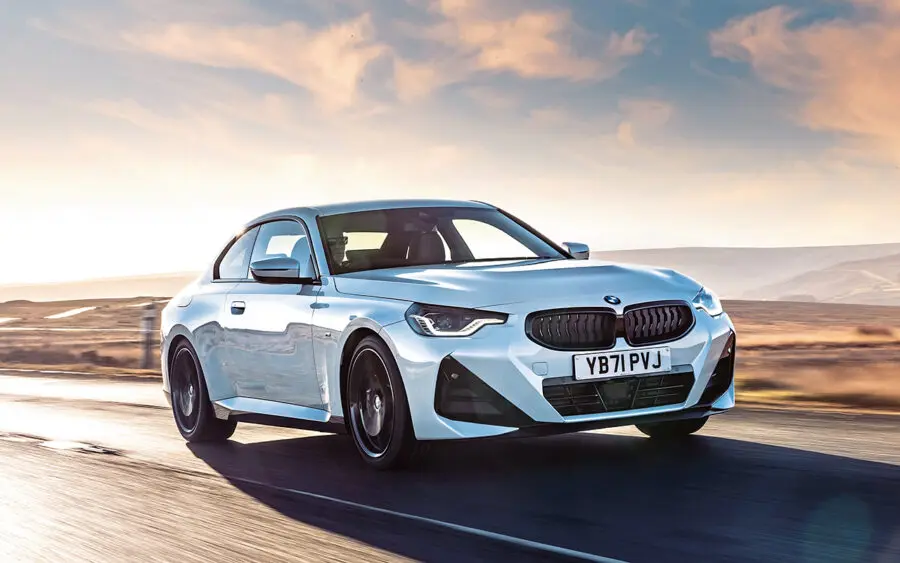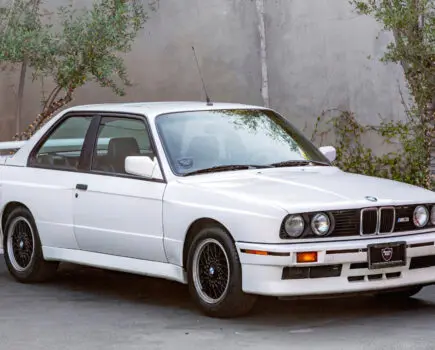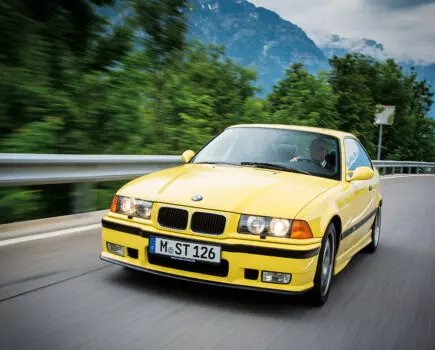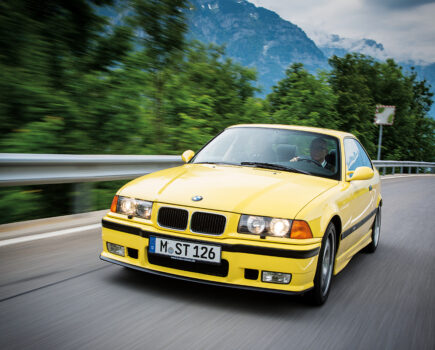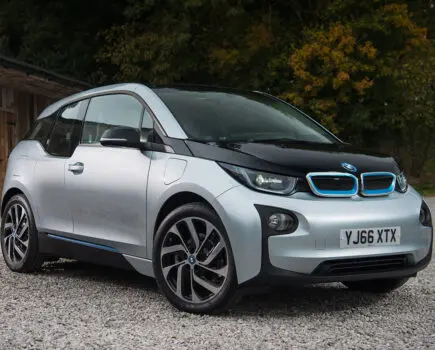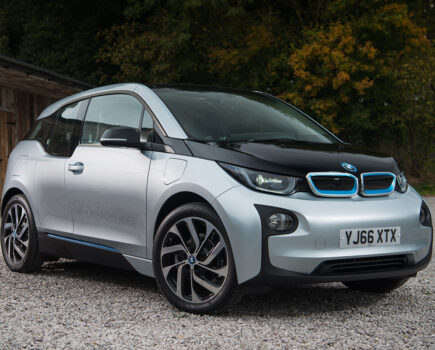Even with diesel power, which is seemingly in the twilight of its life, the BMW 220d Coupé is a brilliant addition to the line-up
Words: Shane O’Donoghue
The consensus seems to be that the days of diesel-powered cars are numbered. In the UK alone, diesel’s share of the new car market has dramatically dropped from over 50 percent a decade ago to just 14 per cent in 2021 – and demand is still in freefall as more buyers opt for hybrids and electric power than ever. By extension, surely the days of diesel-powered cars with some sporting pretention can be counted on one hand.
And yet, against all odds, when BMW launched its new G42 2 Series Coupé, it was offered with diesel power from the off, with little sign of a plug-in hybrid or electric variant for this generation. Does that make the shiny-new 220d Coupé a relic before it hits the market in meaningful numbers, or does BMW know something we don’t?
To be fair to BMW, despite its intensive focus on circularity, sustainability and electrification of its cars, it has also, on numerous occasions, stated that it doesn’t believe that the entire world is ready to ditch internal combustion engines, so it continues to optimise them for its customers’ needs.
The 220d’s four-cylinder turbodiesel is a case in point. Our first chance to sample this modern twin-turbocharged version of BMW’s venerable diesel was back at the end of 2018, during our first drive of the G20 3 Series. It’s a multi-stage setup, with a low-pressure turbo featuring variable inlet geometry to enhance drivability. Maximum outputs haven’t changed at all since then, with an adequate 190hp at 4000rpm and a chunky 295lb ft of torque from 1750-2500rpm still quoted by BMW, but the high-pressure, common-rail, direction fuel injection system has been further refined with injection pressure of up to 2500 bar. In comparison to an electric car, it’s loud, but by the standards of diesel it’s remarkably smooth and quiet in operation.
Enhancing its efficiency in the new 220d is a 48-volt mild-hybrid system. This uses a 48-volt starter-generator instead of a traditional starting motor and it can add a modest 11hp boost to help with low-speed response. More usefully it can store energy recuperated during deceleration in an additional battery (this one is under the bonnet, while the regular 12-volt battery is still in the boot) to be used to power ancillaries more efficiently, allowing longer periods with the engine off without compromising on climate control, for example. The engine also starts in a far smoother and quicker manner – particularly noticeable in stop-start traffic. No longer are you reaching to turn off the stop-start system at junctions and busy roundabouts.
The interface between the mild-hybrid system and the ZF eight-speed automatic transmission (the forthcoming M2 will be the only version of the 2 Series Coupé to be offered with a manual gearbox) isn’t so impressive, making it a little jerky at times when coming to a stop. This used to be a nigh on perfect automatic gearbox, but it’s not anymore. Thankfully, when on the move it’s still brilliant, smoothly shifting gears when you want to take it easy, or speeding up the shifts when in the Sport mode. You can take control of the shift points for yourself using the standard paddles behind the steering wheel too, of course, but there’s truly little reason to in the 220d. That’s partly to do with the torque-led delivery of the diesel engine, of course. It will rev out cleanly to its red line, but there’s little incentive to do so as all the meaningful thrust has dissipated by 4000rpm.
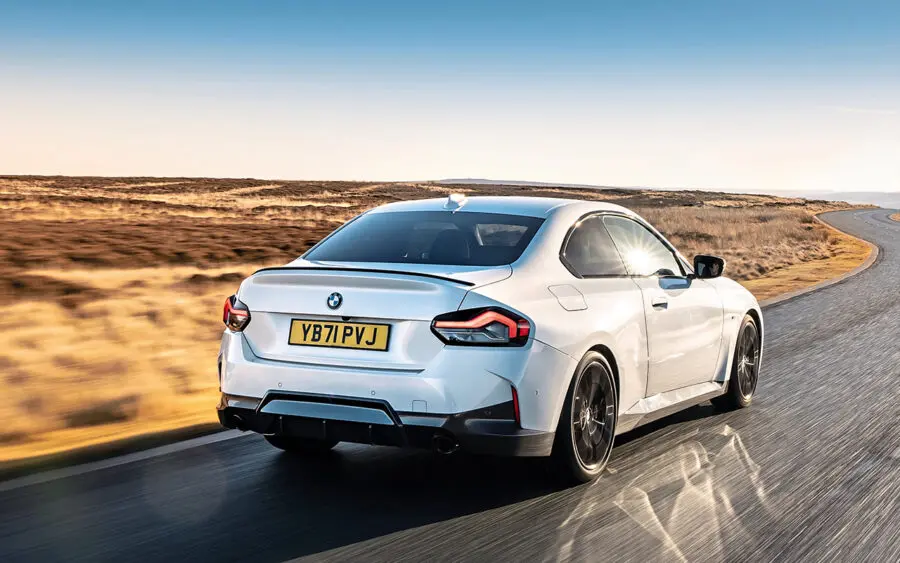
In the dry, there’s not really enough torque produced to challenge the wider track and tyres of the new 2 Series Coupé, though it still feels delightfully rear-driven when you do push it on. In fact, it comes alive on a B-road with a partly broken surface, which some won’t expect. It is truly brilliant in that environment. Such a driver’s car. It feels firm and immediate when you start moving, but you discover that it doesn’t rattle your fillings exactly, at least not on the standard-fit 18-inch alloy wheels. The short wheelbase (110 millimetres shorter than that of the 4 Series Coupé for example) means you have to take your time over speedbumps if you don’t want to annoy your passengers, but at speed on bad roads it’s exceptionally good and very controlled. This is a fully passive system, too, with no adaptive damping.
By default, the traction and stability control system doesn’t allow much slip, but a quick tap on the button moves it into the Traction setting and that allows a smidgen more leeway. It certainly feels rear-drive, and it’s all the better for it – even when you’re not broaching the tyres’ limits of grip. Variable Sport Steering (variable ratio and power assistance) is fitted as standard and the best thing about it is that you don’t realise it’s anything other than a relatively communicative and well-weighted system. As ever, having a simply round steering wheel is a bonus – something not to be taken for granted given the introduction of an alternative shape on the BMW iX and next year’s XM.
The rest of the interior is more or less lifted wholesale from the pre-LCI 3 Series, which means high quality materials and tactile switchgear throughout. It does without the latest-generation curved instrument display (we expect that to arrive on the 2 Series next year), and we’ve never loved the way the digital instruments are rendered, but there’s little wrong with the iDrive interface and the rotary controller between the front seats, while the touchscreen responds more quickly than most. Built-in technology includes Apple CarPlay (wireless or wired), Android Auto and Amazon Alexa.
In terms of practicality, the 2 Series Coupé is obviously more about those sitting in the front seats. There’s loads of space up front. For the few times you do want to carry rear passengers, you may want to make their lives more pleasant by sliding the front seats forward a tad, as legroom is tight, despite the fact that the new car’s wheelbase is some 50mm longer than that of its predecessor. And anyone approaching six-foot tall will find their heads touching the sloping roof. At least the boot is a decent size, holding 390 litres – and the rear seats split 60:40 and fold down to allow loading of longer items when needs be.
Not that such things are likely to be foremost on the minds of prospective buyers, lured into a BMW showroom by the highly distinctive design of the 2 Series Coupé. It’s surprisingly different to the rest of the line-up. I really like the look, though it’s quite odd in some ways, certainly not traditionally pretty, but I like how distinctive it is. The design appears different from different angles, too. The rear three quarters is my favourite view with the lights, haunches and rear flip-up built-in spoiler. The stance isn’t bad on these relatively small wheels either, though even better on larger wheels of course. The front grille won’t cause so many debates as the upright style of the 4 Series and iX have done, and BMW’s designers have made a feature out of the variable opening flaps in the grille as well.
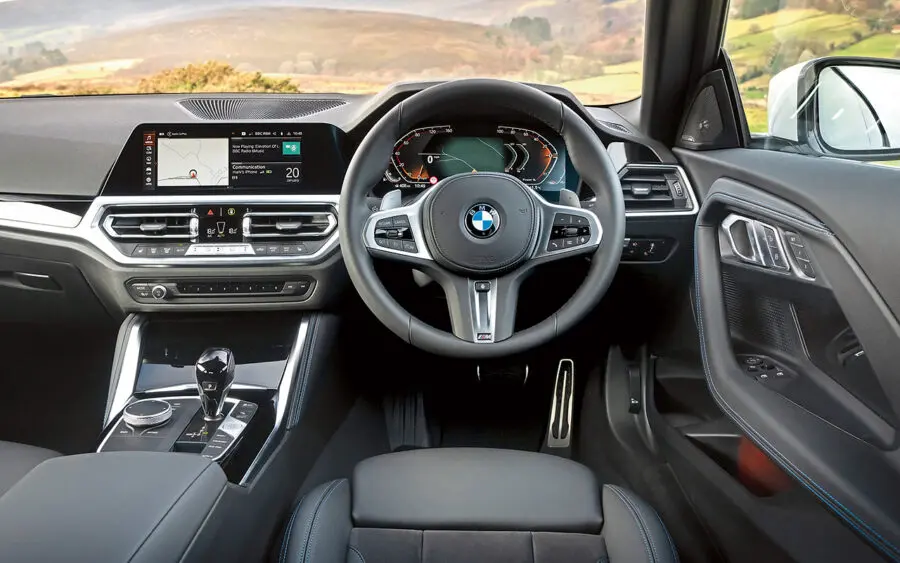
So, what engine should you have behind there? We’d be inclined to say that the diesel – any diesel – is only at its best when used on the motorway regularly for long journeys. That’s when it’s at its most efficient and where it can result in significant cost savings over a petrol alternative. The 220d Coupé, for instance, can achieve as high as 60.1mpg according to official numbers, while the must frugal petrol model, the 220i, returns 44.1mpg. The latter is only a little less expensive to buy, too, starting at £36,010 – compared with £37,985 for the 220d. The difference to monthly payments will be all but irrelevant when buying through finance or leasing, while the diesel model attracts less benefit-in-kind tax.
And while we do think that petrol power better suits the 2 Series Coupé, the 220i has considerably less go than the 220d. If you can stretch your budget a little further again, and the long-distance parsimony isn’t critical to your decision, then the 230i makes a more compelling case for itself with a useful step up in performance.
Nonetheless, there’s clearly a place in the BMW line-up for the 220d Coupé, which means there’s still a place in the world for diesel. For now at least.
